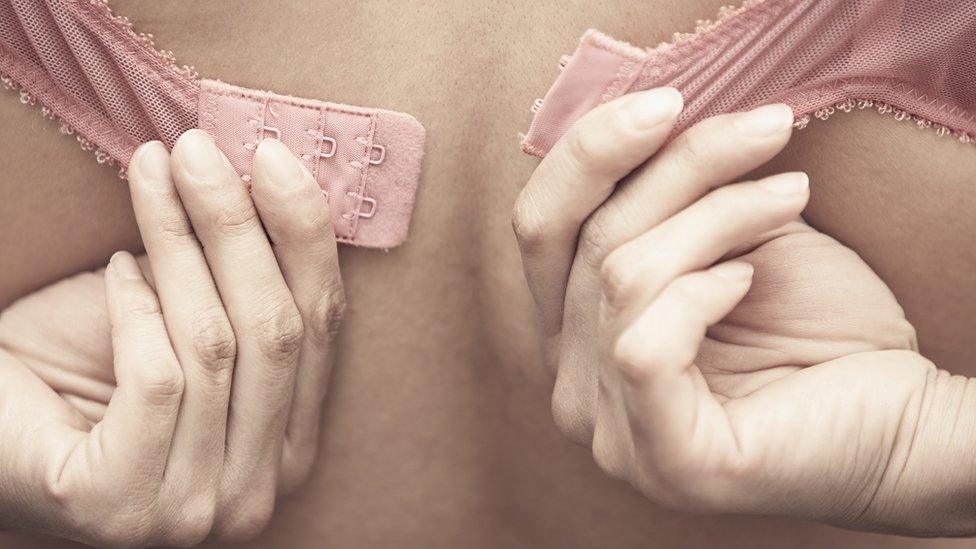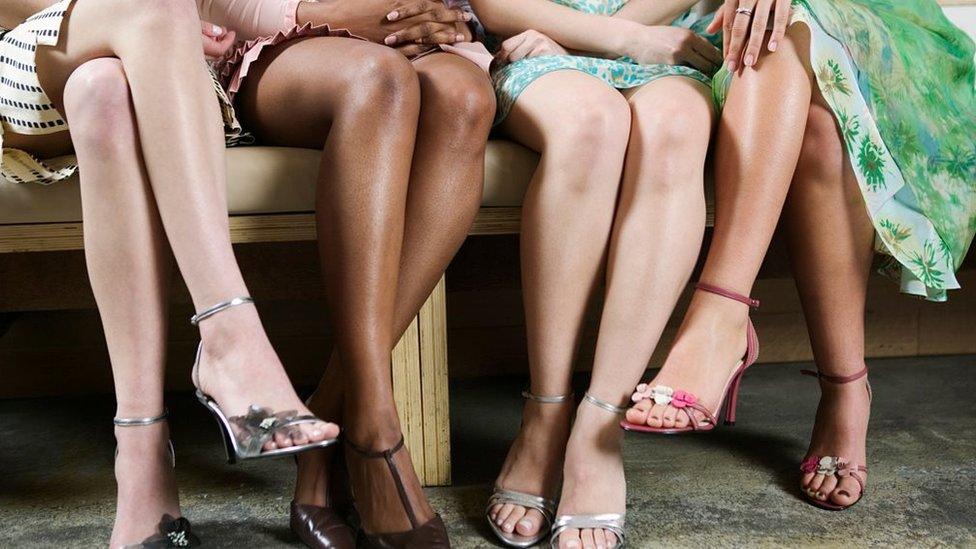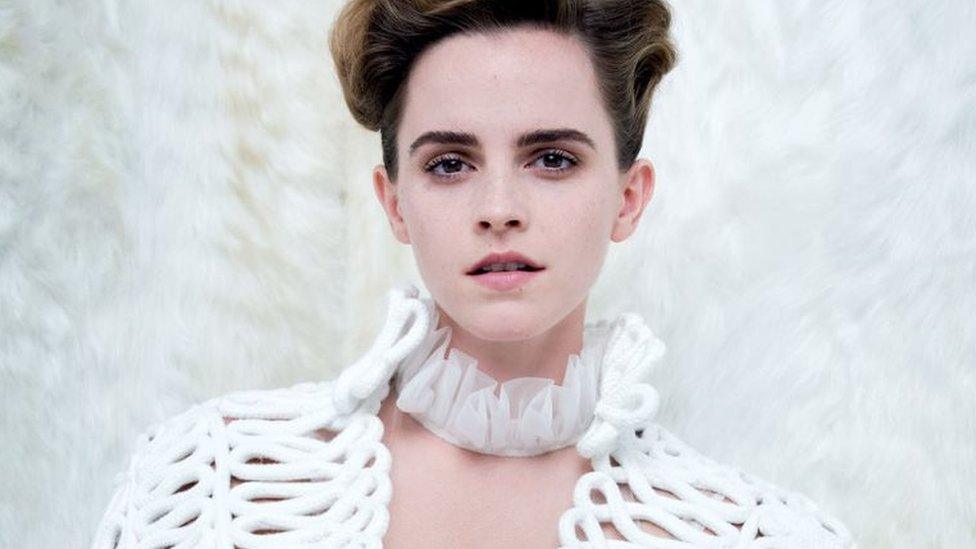Emma Watson isn't alone - I face a 'breast backlash' every day
- Published

Karen Gormley describes herself as "smiley and quite shy", but says people see her differently simply because of the size of her breasts. The 45-year-old, from Preston, Lancashire, got in touch with BBC News after the furore over Emma Watson's Vanity Fair photoshoot.
Karen says women, in particular, are guilty of judging her character just by her appearance.
This is her story:
"I am petite with large breasts. I am 5ft 2. When I was last measured years ago I was a 28G.
People assume that my shape means I am promiscuous.
I found it all-too familiar when Emma Watson was criticised as being anti-feminist for showing part of her breasts in a magazine photoshoot.
Women who are up in arms about it aren't doing us any favours. I'm also a feminist and believe women should be able to wear whatever they like.
Unlike Emma, I'm too shy to be in photographs, but as soon as I wear fitted clothes or a lower neckline, I'm branded as attention-seeking.
'Followed everywhere'
It began when I was 14. I noticed that middle-aged men would follow me. I was in school uniform but it happened every time I went into town. It was really frightening.
But it wasn't always men. A female teacher once told me I couldn't wear a pinafore dress even though it was school uniform because I wasn't "covered up".
I felt on edge all the time and began wearing baggy clothes, so people thought I was fat.
When I was 16 I braved wearing a fitted dress for a party. It wasn't low cut but my cleavage showed a bit - suddenly my friends gasped at how much "weight" I'd lost.
The worst thing that ever happened was when I was 21 and my boyfriend at the time introduced me to his brother. Instead of saying "Nice to meet you" he pointed at my chest and said "Look at the size of them!".
As part of my job working with young offenders, I have worked in offices full of men and have constantly dealt with comments.
I was always seen as the "easy" woman to flirt with.
Surgery plans
I am planning a breast reduction, which I can get on the NHS, due to the size of my breasts, which cause me back problems.
The decision is to do with my health but also the way I've been treated.
It was a friend-of-a-friend's comment that proved the last straw. She said that I only get attention because I have big boobs.
It made me feel like I am nothing except for what hangs on my chest. I don't want to be that person.

I have two daughters - 17 and 22 - who are both very pretty and a similar shape to me, and I see them going through the same thing.
I used to be over-protective and tell them to take pictures off Facebook, but I don't want my problem to become their problem too.
I just tell them that if you wear low-cut stuff, somebody will judge you to have a certain character you don't have. It's not your fault and they don't have the right to do that, but they will.
But my daughters aren't shy like me and would tear a strip off anyone who bothers them!"

How harmful are comments to body image?

A nasty remark on social media or even a well-meaning comment from a friend can be hugely damaging to a person's body image - and even drive someone to opt for surgery, according to psychologists.
About half of UK women are unhappy with their body shape, which can lead to low self-esteem, depression, eating disorders and body dysmorphias.
Dr Emma Halliwell, a psychologist at the Centre for Appearance Research at the University of the West of England, thinks body image is an "issue that impacts upon all aspects of girls' and women's lives".
Her research into body confidence has found that "society teaches girls that their appearance is intrinsically linked to their value as a person".
Women are bombarded with a "beauty ideal" - one body type, one look, one shape, one colour, one breast or buttock - which is reinforced by friends, on Facebook and in magazines and music videos, she says.
As a result, adult women may skip work or a job interview if they feel negative about their looks.
"We need to challenge these messages that female appearance is of central importance," she says.

- Published6 March 2017

- Published5 March 2017
